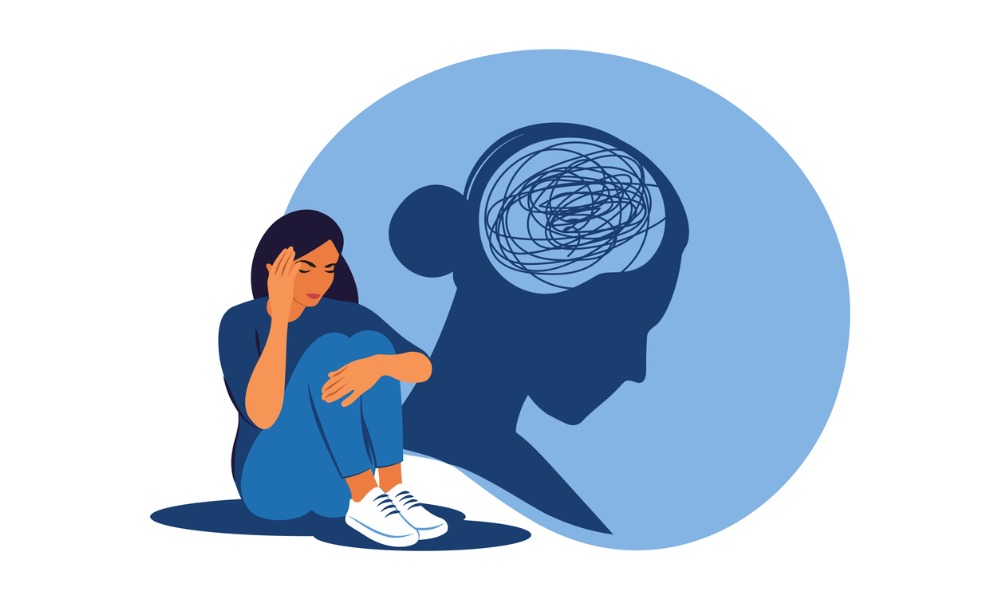New survey shows 8% of Canadians report PTSD symptoms, with varying impacts on daily life and work

Stress is a common experience for many people, with stressful events ranging from minor day-to-day challenges to severe and potentially traumatic events.
Findings from the Survey on Mental Health and Stressful Events (SMHSE) provide insight into the most common potentially traumatic events adults living in Canada have experienced and their connection to symptoms of posttraumatic stress disorder (PTSD).
An event involving exposure to actual or threatened death, serious injury, or sexual violence is referred to as a “potentially traumatic event” or a “potentially psychologically traumatic event.” These events include war, combat, major accidents, disasters, and interpersonal violence.
Some people develop PTSD after exposure to these events. Symptoms include recurring and distressing memories, avoiding reminders of the event, and disturbed sleep. About 8 percent of adults in Canada reported moderate to severe symptoms of PTSD in the month prior to completing the survey.
The SMHSE aims to understand the prevalence of PTSD, the types of traumatic events leading to PTSD, and their impacts on daily life. Nearly two-thirds (63 percent) of adults in Canada reported exposure to a potentially traumatic event at some point.
Respondents included events that happened to them directly or indirectly, such as events they witnessed, learned about happening to close family or friends, or were exposed to repeatedly through their job.
The most common potentially traumatic event was a transportation accident (31 percent), followed by physical assault (18 percent), life-threatening illness or injury (17 percent), natural disasters (15 percent), and unwanted sexual experiences other than sexual assaults (15 percent).
Less common events included being held in captivity (1 percent) and causing serious injury, harm, or death to someone else (2 percent).
Men and women reported different types of traumatic events. Although 60 percent of men and 67 percent of women reported exposure to potentially traumatic events, the types differed. Sixteen percent of women reported sexual assault exposure, compared to 4 percent of men.
Unwanted sexual experiences were more common for women (23 percent) than men (6 percent), as was exposure to life-threatening illness or injury (19 percent for women compared to 15 percent for men).
Men were more likely to report exposure to serious accidents (15 percent for men compared to 11 percent for women), fire or explosions (11 percent for men compared to 9 percent for women), and toxic substances (7 percent for men compared to 3 percent for women).
About 8 percent of adults in Canada reported moderate to severe PTSD symptoms in the month before the survey, similar to the first SMHSE cycle in 2021. These symptoms indicate a possible PTSD diagnosis and a need for mental health support.
Seven percent of men and 10 percent of women reported moderate to severe PTSD symptoms. Thirteen percent of young adults (18 to 24 years) reported moderate to severe symptoms, compared to 3 percent of seniors (65 years and older).
Similar patterns by age and gender were observed in the first SMHSE cycle and the Survey on COVID-19 and Mental Health.
The type, frequency, and severity of traumatic events affect the likelihood of developing PTSD. Although very few people experienced captivity, 35 percent of those exposed to this event reported moderate to severe PTSD symptoms.
Exposure to sexual assault, a more common experience, is also strongly associated with probable PTSD, with 29 percent of those exposed reporting moderate to severe symptoms.
Other forms of assault or harassment, including assault with a weapon (24 percent), physical assault (23 percent), and unwanted sexual contact (23 percent), also showed high rates of PTSD symptoms.
The survey did not capture the frequency of each type of traumatic event but noted that those exposed to multiple types were more likely to report PTSD symptoms.
Among those exposed to one type of traumatic event, 7 percent reported moderate to severe PTSD symptoms, while 26 percent of those exposed to five or more types reported such symptoms.
PTSD symptoms affect daily life, particularly work. Twenty-five percent of people aged 25 to 54 with moderate to severe PTSD symptoms had not worked in the three months before the survey, compared to 12 percent without these symptoms.
Among those who worked, PTSD impacted the amount and type of work done, with 38 percent reporting reduced work capacity due to health issues, compared to 5 percent without PTSD symptoms.
Heavy drinking and cannabis use were more common among those with moderate to severe PTSD symptoms.
Thirty-eight percent reported heavy drinking, and 15 percent reported daily cannabis use in the 30 days before the survey, compared to 29 percent and 4 percent, respectively, among those without PTSD symptoms.
Of those with moderate to severe PTSD symptoms who used cannabis, 64 percent reported using it for medical reasons.



